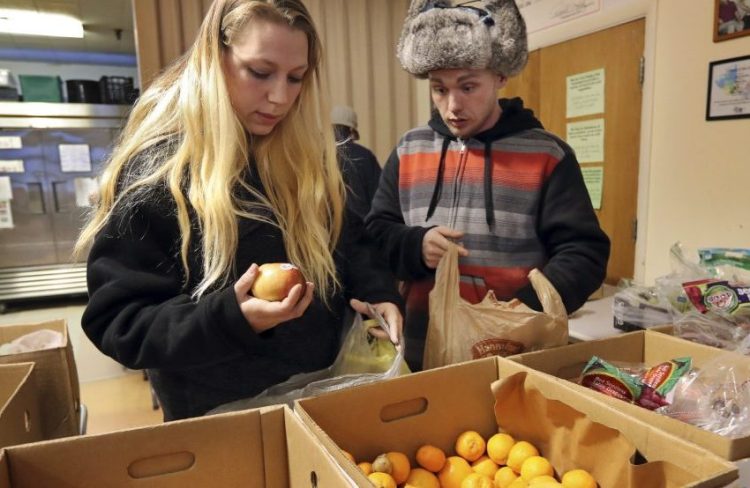There are a lot of things keeping people at the lowest economic rungs from climbing higher, but food assistance is not one of them.
Supplemental Nutrition Assistance Program benefits do not keep people on the couch; at an average of $4 a day, they don’t even last the entire month.
But when those meager benefits are taken away, it does real damage to a person’s ability to get and maintain employment. It doesn’t get them the training they need, improve their health or fix their car – it only makes them more hungry.
That’s why we were glad to see the failure of a version of the farm bill backed by House Republicans, even if its defeat had more to do with intraparty squabbles than the merits of the bill.
Now, as the House debates its next step, the Senate is working on a bipartisan compromise that should target the real reasons why so many poor Americans cannot get ahead.
The House bill would have expanded requirements that force recipients of SNAP – or food stamps – to work, volunteer or participate in training 20 hours a week. If they don’t meet those requirements in more than three months of any four-year span, they lose their benefits. Children, the disabled and the elderly – as well as pregnant women and caretakers of a child under 6 – are excluded.
That leaves a relatively small group of recipients who are part of the volatile low-wage economy. While most of them work, they do so intermittently at unstable jobs with uncertain schedules. When the hours dry up, when their transportation fails, when they or a family member get sick, they cannot work, and they rely on food stamps until the cycle starts again.
Work requirements don’t force the local store manager to hire more people or offer more hours. They don’t make a car payment, or add a bus route where there wasn’t one before. They don’t treat chronic illness.
But they do provide a reason to cut off benefits, whether because someone doesn’t meet the exact requirements, or because they can’t navigate the bureaucracy in place to enforce them.
So people get cut off, yet they are no more ready or able to improve their position. In fact, they are worse off.
That’s what happened in Maine when Gov. LePage began enforcing strict work requirements. People lost SNAP benefits but didn’t gain any ground; hunger rose as people lost food stamps, just the opposite of what you’d expect if the requirements worked as promised.
Instead, policymakers should focus on the barriers that keep SNAP recipients from a stable financial life. Programs that address job and skills training along with other supports – transportation, caregiving, clothing – exist through SNAP, but they are woefully underfunded. Limited funding – supported by House Republicans in the 2014 farm bill – has so far shown promise, but needs more time and attention.
Today’s House is going in another direction. Maine’s senators, independent Angus King and Republican Susan Collins, should push for the Senate to include ample training funds in its version of the farm bill.
Poor Americans aren’t on assistance because it’s the easy way out; they’re on it because they are stuck in a low-wage existence with few avenues out. The farm bill should show them the way, not abandon them in a time of need.
Send questions/comments to the editors.



Comments are no longer available on this story